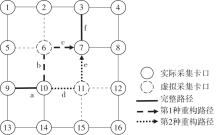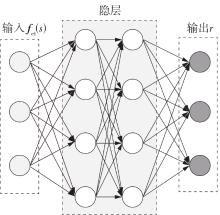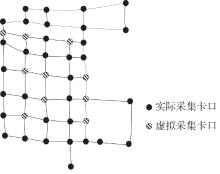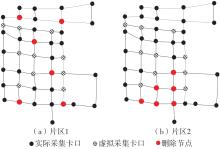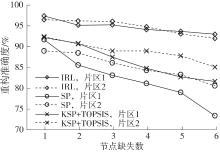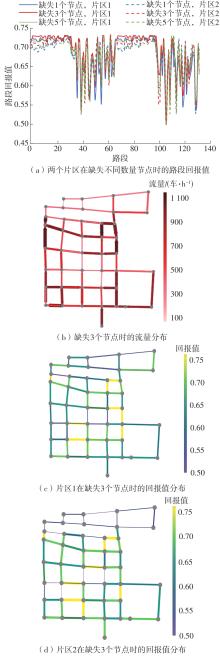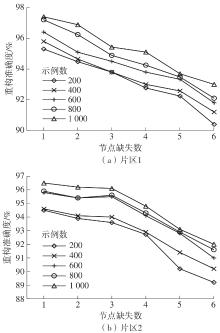| 1 |
姜桂艳 .道路交通状态判别技术与应用[M].北京:人民交通出版社,2004.
|
| 2 |
KENNEDY J, CANTRELLC R, VARNEY M D .Highway travel time analysis using license plate image capture techniques[C]∥ Proceedings of Industrial and Highway Sensors Technology.Providence:International Society for Optical Engineering,2004:294-303.
|
| 3 |
NIGRO M, CIPRIANI E, DEL GIUDICE A .Exploiting floating car data for time-dependent origin-destination matrices estimation[J].Journal of Intelligent Transportation Systems,2018,22(2):159-174.
|
| 4 |
LUO X, WANG D, MA D,et al .Grouped travel time estimation in signalized arterials using point-to-point detectors[J].Transportation Research Part B:Methodological,2019,130:130-151.
|
| 5 |
SHEN X, ZHOU Y, JIN S,et al .Spatiotemporal influence of land use and household properties on automobile travel demand[J].Transportation Research Part D:Transport and Environment,2020,84:102359.
|
| 6 |
王龙飞,陈红,李杨,等 .车辆出行轨迹调查分析中的丢点轨迹还原[J].计算机应用研究,2014,31(1):162-165.
|
|
WANG Long-fei, CHEN Hong, LI Yang,et al .Track patching method for incomplete track in track-oriented traffic survey and analysis[J].Application Research of Computers,2014,31(1):162-165.
|
| 7 |
YANG J, SUN J .Vehicle path reconstruction using automatic vehicle identification data:an integrated particle filter and path flow estimator[J].Transportation Research Part C:Emerging Technologies,2015,58:107-126.
|
| 8 |
阮树斌,王福建,马东方,等 .基于车牌识别数据的机动车出行轨迹提取算法[J].浙江大学学报(工学版),2018,52(5):836-844.
|
|
RUAN Shu-bin, WANG Fu-jian, MA Dong-fang,et al .Vehicle trajectory extraction algorithm based on license plate recognition data[J].Journal of Zhejiang University (Engineering Science),2018,52(5):836-844.
|
| 9 |
毋帆 .基于车牌识别数据的通勤路径选择行为与协同控制优化研究[D].济南:山东大学,2020.
|
| 10 |
MO B, LI R M, DAI J C .Estimating dynamic origin-destination demand:a hybrid framework using license plate recognition data[J].Computer-Aided Civil and Infrastructure Engineering,2020,35(7):734-752.
|
| 11 |
李晨溪,曹雷,张永亮,等 .基于知识的深度强化学习研究综述[J].系统工程与电子技术,2017,39(11):2603-2613.
|
|
LI Chen-xi, CAO Lei, ZHANG Yong-liang,et al .Knowledge-based deep reinforcement learning:a review[J].Systems Engineering and Electronics,2017,39(11):2603-2613.
|
| 12 |
KISHIKAWA D, ARAI S .Estimation of personal driving style via deep inverse reinforcement learning[J].Artificial Life and Robotics,2021,26(3):338-346.
|
| 13 |
BING Z, LEMKE C, CHENG L,et al .Energy-efficient and damage-recovery slithering gait design for a snake-like robot based on reinforcement learning and inverse reinforcement learning[J].Neural Networks,2020,129:323-333.
|
| 14 |
KIRAN B R, SOBH I, TALPAERT V .Deep reinforcement learning for autonomous driving:a survey[J].IEEE Transactions on Intelligent Transportation Systems,2022,23(6):4909-4926.
|
| 15 |
李晓莉,石建军 .行程时间异常值处理方法研究[J].武汉理工大学学报(交通科学与工程版),2012,36(1):116-119.
|
|
LI Xiao-li, SHI Jian-jun .Research on the filtering method for travel time outliers[J].Journal of Wuhan University of Technology (Transportation Science & Engineering),2012,36(1):116-119.
|
| 16 |
柴华骏,李瑞敏,郭敏 .基于车牌识别数据的城市道路旅行时间分布规律及估计方法研究[J].交通运输系统工程与信息,2012,12(6):41-47.
|
|
CHAI Hua-jun, LI Rui-min, GUO Min .Travel time distribution and estimation of urban traffic using vehicle identification data[J].Journal of Transportation Systems Engineering & Information Technology,2012,12(6):41-47.
|
| 17 |
NARITA A, HAYASHI K, TOMIOKA R,et al .Tensor factorization using auxiliary information[J].Data Mining & Knowledge Discovery,2012,25(2):298-324.
|
| 18 |
DONG H, DING F, TAN H,et al .Rail transit OD-matrix completion via manifold regularized tensor factorisation[J].IET Intelligent Transport Systems,2021,15:1304-1317.
|
| 19 |
杨克宇,高云君,陈璐,等 .分布式的增量式张量Tucker分解方法[J].计算机学报,2021,44(8):1696-1713.
|
|
YANG Ke-yu, GAO Yun-jun, CHEN Lu,et al .Distributed incremental tensor tucker decomposition[J].Chinese Journal of Computers,2021,44(8):1696-1713.
|
| 20 |
YOU C X, LU J B, FILEV D,et al .Advanced planning for autonomous vehicles using reinforcement learning and deep inverse reinforcement learning[J].Robotics and Autonomous Systems,2018,114:1-18.
|
| 21 |
ZIEBART B D, MAAS A L, BAGNELL J A,et al .Maximum entropy inverse reinforcement learning[C]∥ Proceedings of the Twenty-Third AAAI Conference on Artificial Intelligence,AAAI 2008.Chicago:AAAI,2008.
|
| 22 |
陈希亮,曹雷,何明,等 .深度逆向强化学习研究综述[J].计算机工程与应用,2018,54(5):24-35.
|
|
CHEN Xi-lian, CAO Lei, HE Ming,et al .Overview of deep inverse reinforcement learning[J].Computer Engineering and Application,2018,54(5):24-35.
|
